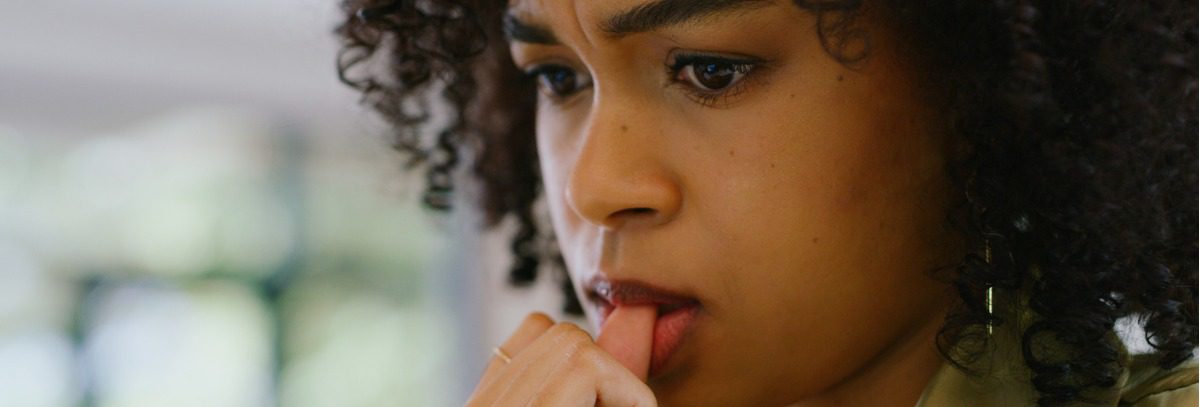While nail-biting is a common habit, it can do more than just wreak havoc on your nails and fingers. Most people aren’t aware of all the negative side effects it can have on your teeth and mouth. So, it’s important to understand the potential issues, especially if you’re trying to break the habit. At Comprehensive Dental Care, our Gainesville dentists strive to educate patients about good oral health, so you can feel good about your smile.
Worried about how nail-biting might have already impacted your teeth? Schedule a dental consultation with one of our dentists in Gainesville today!
Damage
You should try to avoid eating or chewing on hard items, such as potato chips, ice, or pen caps. Unfortunately, this includes your nails as well. That’s because chewing or biting on your nails can wear down your teeth’s enamel, which can then lead to tooth decay, chipped or cracked teeth, or costly damage to dental bridges, veneers, braces, or dental crowns.
Oral Stress
Habitual nail-biting may be a symptom of stress, but it can cause additional stress to your jaw and teeth. As you chew your nails, you’re putting excess pressure on your jaw bone. This can result in a poor alignment and may cause a dislocated jaw in severe cases. It can also cause or worsen bruxism, which is excessive grinding of the teeth or clenching of the jaw. Grinding your teeth wears them down, permanently damaging the enamel, causing accelerated tooth decay.
Germs
Hands are dirty, even if you’re a compulsive hand-washer. And that, for the most part, is to be expected. Hands come into contact with hundreds of things every day because they’re a vital part of how we interact with the world. However, it can become an issue when you start putting your hands in your mouth. Nails can be especially dirty because it’s harder to clean underneath the nail. This area can harbor bacteria or viruses that can cause you to become ill or potentially lead to an oral infection, which can be very serious.
Gum Disease
Exposure to germs from your nails and fingers can promote gum disease and infection in nail-biters. However, the act of chewing on your nails can damage your gums, which can lead to gingivitis. Gingivitis can result in sore, tender gums prone to bleeding and receding gums, which can cause tooth loss. Additionally, there is a link between gingivitis and developing Alzheimer’s later in life.
Tips For How To Stop Biting Nails
Like many habits, nail-biting can be a difficult habit to break. However, by being consistent and following some or all of these tips, you can finally kick nail-biting to the curb.
- Trim your nails regularly. You can’t bite what’s not there! Just be sure you are trimming your nails correctly and not cutting them too short, which can damage the nail bed and potentially cause infections.
- Apply bitter polish. There are specially formulated polishes available with a bitter taste and can make biting your nails unpleasant.
- Manage stress. Of course, this may sound easier said than done, but getting to the root of your nail-biting habit can help you become less reliant on it. For daily stresses, try an alternate way to manage stress, including squeezing a stress ball, playing with slime, going for a walk, meditating, or finger tapping. For severe cases of stress, it may be beneficial to speak with a therapist who can provide more insight into stress management techniques.
- Be patient with yourself. While quitting something cold-turkey may be possible for some people, most people need time. Try to limit nail-biting slowly over time and be patient with yourself if you relapse or don’t make progress as quickly as you would like.
For more information on proper dental care, contact our Gainesville dentists to schedule a consultation.
